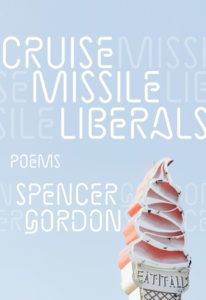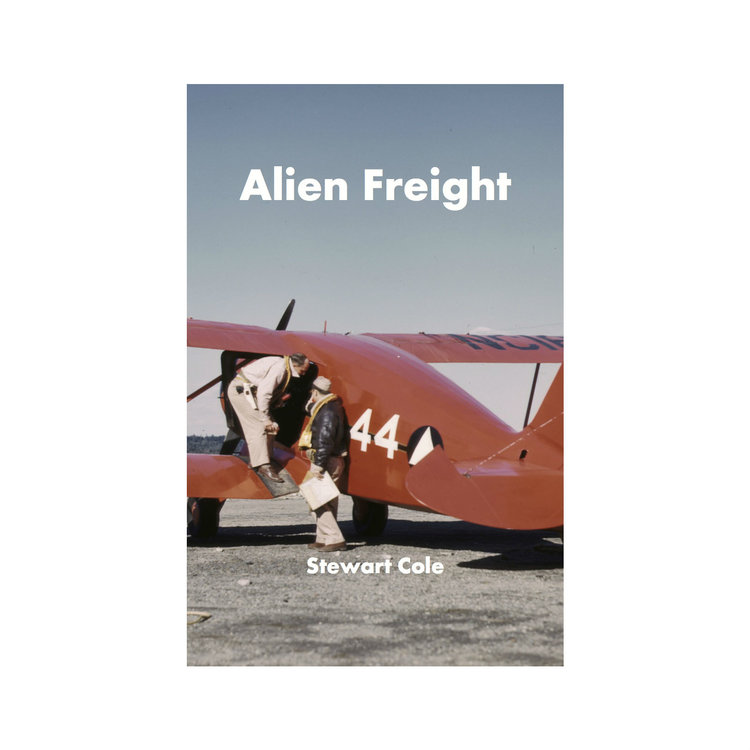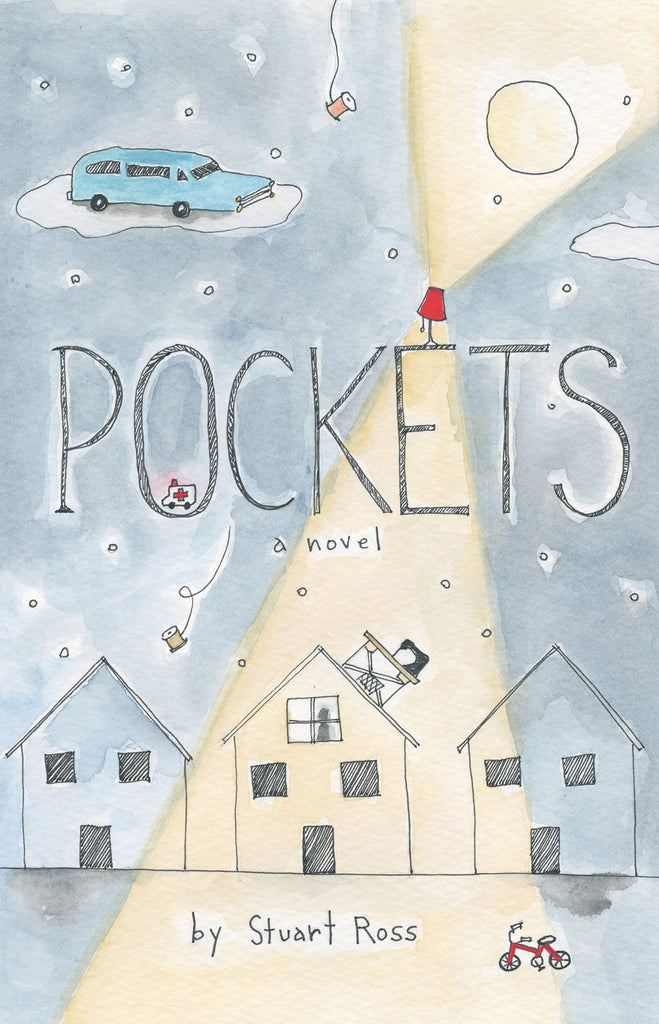Cruise Missile Liberals. Spencer Gordon. Nightwood Editions. Gibsons, British Columbia. 2017.

Spencer Gordon's Cruise Missile Liberals sounds like the astute patter of a poetry carny convincing you to step right up. Gordon is slick and his slick poems blister past in a new age be-bop patter of sophisticated memes.
Gordon has a vise grip on the necessary lingo to storm the castle but he's not about organizing the revolution. But he certainly is going to record it. Take names.
The feel of these poems, this book reminds Today's book of poetry of Joe Orton's "Kicking Against the Pricks" because Gordon showers the reader with a sustained marvel of devilish disenfranchisement.
Here and Now
More people believe a wafer
becomes the body of Christ
than a slick strip of bacon
comes screaming from a pig.
But what do you want from nothing?
Focus groups? Blood from stone? Ex nihilo?
Suppose everything wants to be alive
so long as life is not all pain.
Suppose god sees all time as one--
then imagine the fulcrum
of screams She endures as each
woman and man and dog
gives up the only thing it wants.
Two men stomp a lamb to death;
a woman French-kisses a doomed
sow through the frost-bit bars
of a trailer. Kiska the Orca circles her pond
300 times a day for the rest of her fucked life.
Today, I see an animal online, I dive for cover.
It's going to be unbearably cute, or it's going
to be torture. Inshallah. I had to stop
looking at things, talking to faces.
A woman locks a puggle in a closet
and starves it to death. A child
watches Peppa Pig and chews
a ham sandwich. "It's Earth Day," her mother says,
turning off all the lights before grilling steaks
on the barbecue. No, nothing new, nothing
the maniac won't enjoy mansplaining
as human nature, God's will, economics,
evolution. Jobs. Another perspective
on your little cell. "I have PTSD," says
the filmmaker, the photographer, the eyeball
that can't look away. Dear God, I prayed,
and I mean a very traditional Catholic God
except a Mother:
Please make everything better for all
the suffering bodies on the planet.
Signed, a tiny child with a tiny head.
Then I sat in Catholic Mass and wept, wanting
my God back, or to be real. Everything is flayed
by one very sharp knife, because #vintagefur.
Because McDoubles.
But one day, instead of wine and bread, one
man to one chalice rimmed with ghostly life,
we'll become one mass, one set of eyes, wet
with salt, sentimental as old hysterics--
and what we'll eat is only love.
...
In hopes of continuing our record of full disclosure Mr. Gordon wrote a review of my own Coming Ashore on Fire (burnt wine press, 2009). You can see that review here:
Spencer Gordon isn't someone Today's book of poetry knows and we were a little post-review skeptical when we first opened Cruise Missile Liberals. Not all of what Gordon said in his review was easy to take - but it was all true. Some of the minions had their dander up but I assured them that I was very proud of Gordon's review. He treated my poetry with respect. Today's book of poetry tries to do the same but our biases come out all over the place regardless of how much I try to rein them in.
Gordon quickly allayed all of our fears with his "detailed passion" and spontaneous enthusiasms. Once you align your gears properly Gordon steamrolls.
Survey
I have a loving mother and father and baby sister and girlfriend and I
am surrounded by people who respect me and take what I say seriously
and meditate on the things I say to them and want to know my take on
things and think my feelings are important and
when I drive through
the slanting autumn light in my car I think about all the aching leaves
withering into next winter and when I get home my girlfriend puts her
arms around my neck and we eat and talk about our days and the light
is slanting and then some music and wine or television
which I watch without
guilt and then work on things people value and respect and the work
goes well because it is honest and the phone rings and it is my loving
mother and father and they say we love you and I say where is my baby
sister and she comes
on the phone and tells me she drew a picture of me driving through
the slanting autumn light in my car and I am smiling and going home
to my girlfriend who is pretty and intelligent and someone I rely upon
when things are tough so yes I would say I
strongly agree.
...
Our morning read was interrupted by a small snowfall that we quickly brushed aside. Post brooming and shovelling, Milo, our head tech, said that he was particularly taken by Gordon when he lets down his guard and plays out some of his emotional wisdom unbroken by skeptical analysis.
Today's book of poetry is always going to appreciate any poet who finds a place for Billie Holiday and Charlie Parker in their poetry and Spencer Gordon folds both of them into his roadwork.
Today's book of poetry also likes "list" poems, Gordon's "The Winter Wind" is one hell of a list. Dead wrestlers falling out of the ring and into despair as though they were dominoes someone cruelly set on fire with fatigue and grief. This is heart-wrenching and powerful stuff. Cruise Missile Liberals is full of marvelous stuff.
A Good Life
Keep busy, keep frantic and active. Don't let the chest
slow, the mind find time to seek its reflection, for what
it will show cannot bring release. Engage in difficult,
repetitive activities: scrub the kitchen sink, strip the linens
from your squalor, scour the floor with bleach and rip
the shameful pages from your diary. Run, mouth agape, with dogs
through blinding parks. Swim in frigid lakes. Agitate the skin
with acidic lotions. Give yourself wholly to the feeling
of inherent calamity. Drink sixteen cups of coffee, then get falling-
down-drunk in the doorways of your cold, ugly trysts. Only
eat when you are gasping, sputtering with sobriety, and then
only the foods most rich in carbohydrates, proteins, sugars
and the bile you need to keep on ravaging your body. Find
toxic streams; give yourself over to charity; make yourself cum
incessantly while bleeding from wounds with no end, and no beginning.
If you are crying, you are not winning. There is no good living.
...
Today's book of poetry thinks that Spencer Gordon is eloquent with quirky reason, Cruise Missile Liberals is a very tasty well-cooked repast.
Gordon's poetry sometimes revs high with a "gaudy opulence" but that is when he is at his best. When Gordon takes his foot off of the brakes he speeds into some beautifully hellish chaos, when it breaks his previously calm surface ripples over all of us. These poems are a new type of missile.

Spencer Gordon
ABOUT THE AUTHOR
Spencer Gordon is the author of the acclaimed short story collection Cosmo (Coach House Books, 2012), called “startling and invigorating” (and “Canada’s Most Underrated Book”) by Quill and Quire, “rare [and] brave” by the National Post, “poignant and hilarious” by This Magazine, “both heartwarming and heartbreaking” by The Winnipeg Review, and “both ridiculous and absolutely perfect” by The Walrus.He is also the author of the poetry collection Cruise Missile Liberals (Nightwood Editions, 2017), one of CBC’s “16 Poetry Books to Watch.” To the Winnipeg Free Press, it showcases a “disturbing, wry intelligence … [and] taut, careful craft.” The Toronto Star writes that it “offers plenty of laughs, but it’s also got heart.” The Globe and Mail claims that it’s “completely submerged in the zany, disturbing thick of it … [and] might be the oddball balm you need.” And, in a starred review, Quill and Quire comments: “Cruise Missile Liberals is a complex and accomplished first collection from a writer who has honed his voice by listening. Gordon’s examination of the self in late capitalism is not always optimistic but is, in its humanity, enormously affirming.”
Spencer also wrote the poetry chapbooks Anno Zombie Dance (Emergency Response Unit, 2016), Conservative Majority (Apt. 9, 2013) and Feel Good! Look Great! Have a Blast!(Ferno House, 2011, shortlisted for the 2012 bpNichol Chapbook Award). He is one of CBC Books’ Writers to Watch and the winner of a CBC Book Award for Cosmo.
He is co-founder and was senior editor of the ten-year-old magazine The Puritan, one of the country’s premier literary journals (nominated for a National Magazine Award and a regular submitter to Best Canadian Poetry and The Journey Prize). He often serves as a reader and judge for university publications (such as the University of Toronto Magazine), literary magazines (like The Antigonish Review), national prizes (like the CBC Short Story Prize), and arts councils (namely, the Canada Council for the Arts). His writing has appeared in The Globe and Mail, the National Post, the Toronto Star, EVENT, THIS Magazine, Poetry Is Dead, The Winnipeg Review, CNQ, Broken Pencil, Joyland, and many other periodicals and anthologies, including Best Canadian Sports Writing (ECW, 2017).
He holds an MA in Creative Writing from the University of Toronto and a BA in English and Philosophy from the University of Ottawa, and he has taught writing, both professional and creative, at OCAD University, George Brown College, Humber College, and with the University of Toronto’s School of Continuing Studies. He works as the senior writer for The Lavin Agency Speakers Bureau in Toronto (the traditional lands of the Mississaugas of the New Credit, Huron-Wendat, Anishinaabe, Haudenosaunee, and other peoples).
BLURBS
Spencer Gordon’s Cruise Missile Liberals is, as its title suggests, a very funny, often despairing book. Jammed with on-point pop and breathtaking turns of phrase, this collection of poems is genuinely compelling: it is hard to stop reading, so sweetly twisted is Gordon’s world.
There is a generosity of spirit on offer here for we who are tired, placeless, saturated in social media, and wasted on the bright horror of a future that never arrives. This collection is deft, intelligent, and tender, if tenderness is something that can also crush you—an intimacy that panics shut. For we who are “Nature Woke,” “alchemical kids with gold teeth,” “wanting to live as I do, shockingly new,” Gordon sings and memes against “Canada the Good” and presents us with an arresting portrait of our present moment
— Liz Howard, Author of Infinite Citizen of the Shaking Tent (Winner of the 2016 Griffin Poetry Prize)
Cruise Missile Liberals could easily be called Late Capitalism. Spencer Gordon voices the anger and dejection that many of us feel as we survey the detritus of our political and corporate ideologies and attempt to find an alternative to the cultural crack that has previously pacified us. But Gordon does not patronize us with false hope. “There is no system to replace the ruling system,” he writes in “Ticker Tape.” Elsewhere, he notifies us: “If you are crying, you are not winning. There is no good living.” As a solution: “You should burn down your life.” Like an excitable social media stream, these poems persist to the point of “sincere emotional fatigue” yet somehow Gordon manages to make an art of exhaustion, an art of the rant. Reading Gordon’s poetry and fiction, one feels caught in a Mobius strip where life and entertainment loop infinitely into each other. We are sometimes ourselves and sometimes we are Taylor Swift, Avril Lavigne, and Peppa Pig. Or they are us, our teetering elected representatives.
— Ian Williams, Author of Personals (Shortlisted for the Griffin Poetry Prize), Not Anyone’s Anything, and You Know Who You Are
— Ian Williams, Author of Personals (Shortlisted for the Griffin Poetry Prize), Not Anyone’s Anything, and You Know Who You Are
To see video of Spencer Gordon:
651
DISCLAIMERS
Poems cited here are assumed to be under copyright by the poet and/or publisher. They are shown here for publicity and review purposes. For any other kind of re-use of these poems, please contact the listed publishers for permission.
We here at TBOP are technically deficient and rely on our bashful Milo to fix everything. We received notice from Google that we were using "cookies"
and that for our readers in Europe there had to be notification of the use of those "cookies. Please be aware that TBOP may employ the use of some "cookies" (whatever they are) and you should take that into consideration





